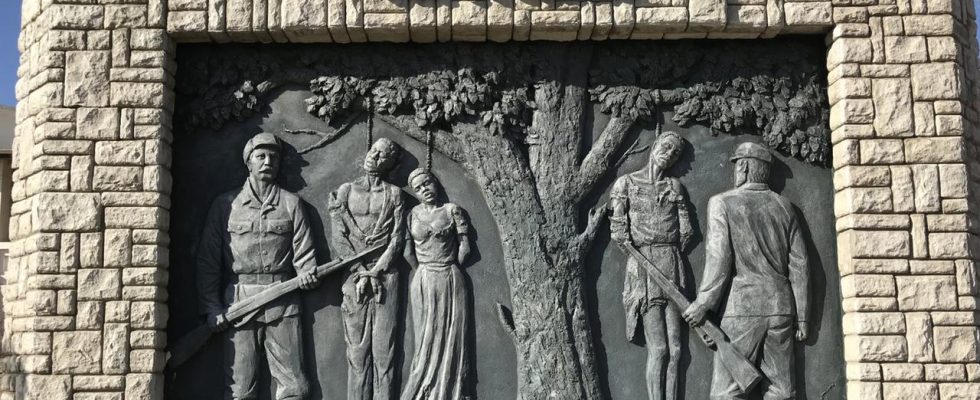In 1904 the Herero and Nama rose up against the German occupiers. The uprising was brutally suppressed and ended in genocide. To date there has been no reconciliation between Namibia and Germany.
It is a bitter day of remembrance. For 20 years, the German colonial rulers had led a reign of terror in the so-called “German Southwest Africa Protected Area”. The local population was oppressed, disenfranchised and exploited. January 12, 1904 marked a turning point. The Herero ethnic group began to defend themselves against the occupiers. The Nama joined the uprising. The German troops were surprised by the attacks – and responded with brutal severity.
Tens of thousands of people fell victim to the campaign of extermination under the command of Lieutenant General Lothar von Trotha. The wounds have not healed to this day. The psychologist and Namibian government advisor Marcella Katjijova speaks of a trauma that is still there. You can still feel the pain that lingers in people.
Germany promises more than a billion euros
Almost three years ago, after long negotiations, the German and Namibian governments agreed on a so-called “reconciliation agreement”. However, those affected categorically reject the agreement. They do not feel sufficiently involved and consider the commitments to be completely inadequate.
Naita Karuaihe from the Namibian Institute for Democracy belongs to the Herero ethnic group and says:
It is clear to us: the German offer is ridiculous. It doesn’t take us seriously.
In the “Joint Declaration”, Germany recognizes the crimes in the former colony as genocide and promises to provide more than one billion euros for development projects in Namibia over the next 30 years to help the descendants of the genocide victims. Expressly as a “gesture of recognition”, and not as a reparation payment – in order to prevent possible further legal claims.
Traumas passed on from generation to generation
The reconciliation process has to be about much more than just money, says Namibian psychologist Marcella Katjijova, pointing out that the trauma suffered by the victims’ families is passed on from generation to generation. People therefore need an open discussion about what real reparation could look like. There must be places to mourn, memorial ceremonies and museums in which the German period, the period of genocide, is shown and explained. In addition, special programs should be set up so that Namibian children could go to Germany to learn and study.
The federal government describes the “Joint Declaration” as a milestone on the path to German-Namibian reconciliation. The Foreign Office said in response to a request from: ARD in Johannesburg, constructive discussions are currently underway to regulate the details of the agreement in an annex. There was most recently a meeting in Berlin at the beginning of December. As before, representatives of the affected communities sat at the table.
Stephan Ueberbach, ARD Johannesburg, tagesschau, January 12, 2024 1:23 p.m

